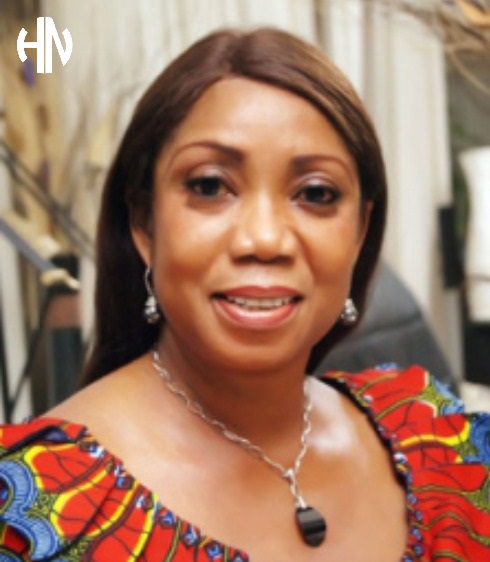By Princess G. Adebajo- Fraser. MFR.
The National Patriots.
When Dr. Ngozi Okonjo-Iweala, Director-General of the World Trade Organization and former Nigerian Finance Minister, stepped out of Aso Rock after her meeting with President Bola Ahmed Tinubu, she likely did not expect to be bombarded with threats and toxic messages. But that was her reality.
“`Ngozi Okonjo-Iweala Speaks After Meeting With President Tinubu Yesterday:“`
“I keep receiving toxic calls and messages regarding my meeting with the president yesterday, and from those I hold in very high esteem. Honestly, I am shocked at the contents of the messages and the tone of the callers. Has Nigeria sunk this low? A visit I made for the good of our dear nation is what they are using to threaten my life and family! You don’t recognize someone as your president yet begging him to save you from the hands of killers in your region.
I am bringing investors to Nigeria using the president’s commendable policies as bait. Is that too difficult to understand?
President Tinubu’s reforms might be harsh now but they would birth a new and prosperous nation. I have lost count of presidents, respected Institutions, and investors that have called to congratulate me on Nigeria eventually having a focused leader since the reforms were rolled out.
At least, six multi-national manufacturing giants are coming with me by December later this year to see how their firms can have factories here. It’s all part of my contributions to the progress of Nigeria. I am not a politician. I only desire the best for my dear country. It informed my visit to President Tinubu. The world has accepted him as our president, like it or not. May God heal us”
– DR. NGOZI OKONJO IWEALA.
In her own words:
“I keep receiving toxic calls and messages regarding my meeting with the president yesterday, and from those I hold in very high esteem. Honestly, I am shocked at the contents of the messages and the tone of the callers. Has Nigeria sunk this low? A visit I made for the good of our dear nation is what they are using to threaten my life and family!”

For Okonjo-Iweala, who has spent decades in the trenches of global finance and governance, the backlash revealed a troubling truth: Nigerians are so consumed by political suspicion and economic pain that even a stateswoman of her stature is not spared hostility.
But beyond her personal lament, her statement was a clarion call — one that must be understood by Nigerians and the world alike. She wasn’t merely defending a visit. She was laying down a framework for why Nigeria’s painful reforms today could be the foundation of a stronger nation tomorrow.
The Meeting That Sparked a Storm
Okonjo-Iweala, who sits atop the WTO — the world’s chief arbiter of global trade rules — met with President Tinubu to discuss Nigeria’s economic reforms and explore investment opportunities.
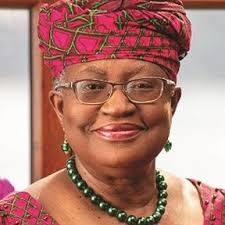
She revealed that “at least six multinational manufacturing giants are coming with me by December later this year to see how their firms can have factories here. It’s all part of my contributions to the progress of Nigeria. I am not a politician. I only desire the best for my dear country.”
In other words, the meeting wasn’t political posturing. It was pragmatic diplomacy. Leveraging her global role, she was inviting heavyweights to see Nigeria as a viable investment destination again.
Yet, the hostility she encountered points to a deeper crisis of trust between Nigerians and their leaders — one that even she, as an independent voice, struggles to bridge.
The Significance of Her Position
Okonjo-Iweala’s perspective matters for several reasons:

1. Credibility: As WTO chief, her words carry weight in boardrooms and capitals worldwide. Investors listen when she speaks.
2. Independence: She is not a politician seeking office or patronage. Her sole currency is credibility, which she cannot afford to squander.
3. Experience: Twice Nigeria’s finance minister, and once a World Bank managing director, she has lived Nigeria’s booms and busts from the inside.
When such a figure says reforms are commendable, the world pays attention — even if Nigerians, tired of hardship, struggle to see the light.
The Reform Agenda: Harsh But Necessary
Since coming to office in May 2023, President Tinubu has embarked on sweeping reforms. The two most consequential moves were:
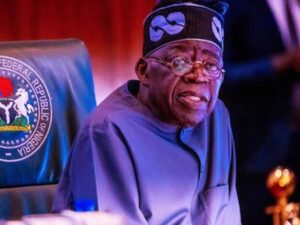
Removal of fuel subsidies (which cost the treasury billions annually), and
Unification of multiple exchange rates (long a source of arbitrage and corruption).
The immediate effect was economic pain: fuel prices tripled, inflation soared, and the naira devalued sharply. For ordinary Nigerians, life became harsher.
Yet, international observers, including the IMF, World Bank, and WTO, have described these reforms as “necessary medicine.” Nigeria, they argue, could no longer afford the old system. Subsidies were draining funds that could be used for infrastructure and social services. Multiple exchange rates discouraged investment.
Okonjo-Iweala herself has praised Tinubu’s reforms for bringing “stability,” while warning that stability must translate into growth and must not leave the vulnerable behind.
Global Validation: The Investment Signal
Numbers are beginning to reflect this.

Nigeria has boosted crude oil output to between 1.7 and 1.83 million barrels per day, thanks to renewed drilling activity. Reforms in the oil sector are attracting investors back.
External reserves now hover around $42 billion, the highest since 2019.
Inflation, while still high at over 20%, has slowed in pace.
Trade surpluses have been recorded in recent quarters.
For international investors, these are green shoots. For Okonjo-Iweala, they are signals that Nigeria is “back in the conversation.” Her mission is to connect these signals to real commitments: factories, jobs, exports.
The Contradictions: Debt, Poverty, and Distrust
But optimism must be balanced with reality.
Nigeria’s public debt has ballooned to over ₦149 trillion in 2025, with forecasts suggesting ₦183 trillion by 2026.
Poverty remains pervasive, with over 40% of Nigerians living below the poverty line.
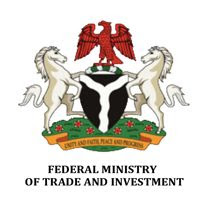
Unemployment, especially among youth, is dangerously high.
For Nigerians living this daily struggle, talk of “stability” feels abstract. This explains the hostility Okonjo-Iweala faced. Nigerians are asking: “How do reforms help me if I cannot afford food, transport, or rent?”
Historical Lessons: Pain Before Progress
History shows that painful reforms often precede prosperity — but only if leaders stay the course and protect the vulnerable.
Brazil’s Lula da Silva endured hostility when he embraced fiscal discipline, but it paved the way for growth and poverty reduction.
India’s 1991 reforms, led by Manmohan Singh, were deeply unpopular initially but unlocked decades of economic expansion.
Ghana’s Rawlings faced resistance to IMF-backed reforms in the 1980s, but the foundations transformed the country’s economy.

In each case, leadership, patience, and safety nets made the difference. Nigeria’s reforms will fail if people feel abandoned.
Safety Nets: The Missing Piece
Even Okonjo-Iweala, while praising Tinubu, has insisted on this: reforms must come with social protection. Cash transfers, targeted subsidies for the poor, investment in public transport, and job creation programs are non-negotiable.
Tinubu has rolled out some palliative measures, but Nigerians argue these are too little, too slow, and often poorly targeted. Unless improved, the risk is clear: reforms may collapse under social unrest.
Threats to Dialogue: Why Attacking Okonjo-Iweala Is Dangerous
That a figure like Okonjo-Iweala faces threats for speaking her mind shows how toxic Nigeria’s political environment has become. It discourages honest debate and deprives the country of credible voices willing to engage constructively.
It also ignores the global reality: “The world has accepted him [Tinubu] as our president, like it or not,” she declared. For better or worse, investors, institutions, and governments are now dealing with Nigeria through Tinubu. Denying that fact only isolates Nigerians further.
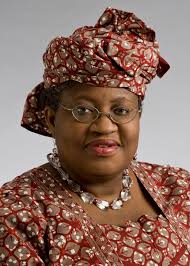
A Message to Nigerians: Trust, But Demand Accountability
Nigerians must understand that Okonjo-Iweala is not whitewashing hardship. She acknowledges it. But she is saying: progress is possible, and the world is watching.
This is both an opportunity and a warning:
Opportunity, because international goodwill can be converted into investments.
Warning, because if Nigeria squanders this window, cynicism will return and capital will flee.
Citizens must therefore demand accountability. Reforms must not line pockets; they must build roads, factories, schools, jobs.
A Message to the Government: Stay the Course, But Protect the People
For Tinubu, the challenge is clear:
1. Maintain reform momentum — backsliding will undo fragile gains.
2. Communicate honestly — tell Nigerians the truth about timelines, sacrifices, and benefits.
3. Protect the vulnerable — no reform survives if millions feel abandoned.
4. Translate validation into results — those six multinationals must not remain promises; they must break ground.
As Okonjo-Iweala said: “President Tinubu’s reforms might be harsh now but they would birth a new and prosperous nation.”
The Bigger Picture: Nigeria at a Crossroads
Nigeria has seen many false dawns. The oil booms of the 1970s and 2000s were squandered. Anti-corruption crusades fizzled. Economic diversification was endlessly promised but rarely delivered.
But today’s context is different:
Global capital is more cautious, but also hungrier for new markets.
Nigeria’s demographics (over 200 million people, mostly youth) are an irresistible consumer base.
Technology and energy transitions are rewriting trade patterns, and Nigeria risks being left behind if it fails to reform.
Okonjo-Iweala is essentially saying: this is Nigeria’s last, best chance.
A Call for Patience and Purpose
Dr. Ngozi Okonjo-Iweala’s statement was not just a defence of her visit. It was a sermon on perspective. Nigerians must not confuse short-term pain with failure. Reform is never easy, but without it, there is no future.
To attack her for engaging with power is to miss the point: her leverage, her access, her voice are for Nigeria’s benefit. The hostility she faced should instead be channeled into holding leaders accountable for ensuring reforms deliver real relief.
The world has accepted Nigeria’s current trajectory. The question is: will Nigerians themselves seize the opportunity?
As Okonjo-Iweala prayed: “May God heal us.”
If Nigeria can blend reform with empathy, investment with inclusion, and vision with action, the healing may indeed begin.
Princess Dr. G. Adebajo-Fraser MFR.
The National Patriots.


